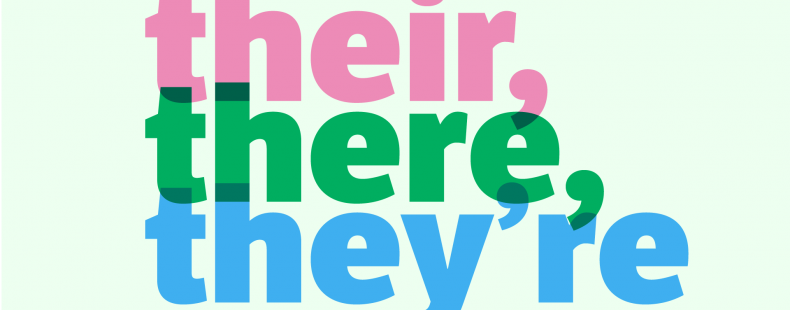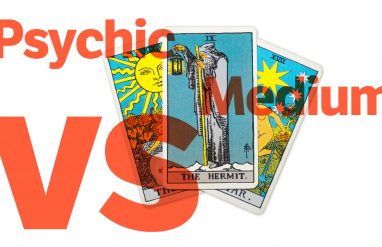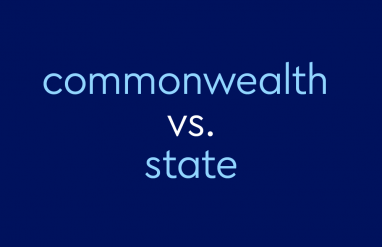The trio of their, there, and they’re can flummox writers of all levels. It’s confusing; they are homophones, meaning they have the same pronunciation (sound) but differ in meaning and derivation (origin).
In this article, we’ll explain the meanings of their, there, and they’re, how to use each word correctly, and provide example sentences for each term. We’ll also give some tips on how to remember how each one is spelled.
⚡ Quick summary
There is commonly used to introduce sentences or to indicate where something is, as in It’s over there, next to the window. Their is the possessive form of the personal pronoun they, essentially meaning “belonging to or possessed by them,” as in Is that their car, or ours? They’re is a contraction of they are.
What is the difference between there, their, and they’re?
These three words serve many functions.
There is an adverb that means in or at that place. In this sense, there is essentially the opposite of here. This is what’s known as an adverb of place, which answers the question where an action is taking place. Many common adverbs end in -ly, like quickly, usually, and completely, but not all adverbs do.
- She is there now.
There is also used as a pronoun introducing the subject of a sentence or clause:
- There is still hope.
Their is the possessive case of the pronoun they, meaning belonging to them. As in:
- They left their cell phones at home.
Their is generally plural, but it is increasingly accepted in place of the singular his or her after words such as someone:
- Someone left their book on the table.
They’re is a contraction of the words they and are.
- They’re mastering the differences between three homophones!
If you find yourself coming up blank when trying to determine which one to use, take a hint from the spelling of each:
- There has the word here in it. There is the choice when talking about places, whether figurative or literal.
- Their has the word heir in it, which can act as a reminder that the term indicates possession.
- They’re has an apostrophe, which means it’s the product of two words: they are. If you can substitute they are into your sentence and retain the meaning, then they’re is the correct homophone to use.














